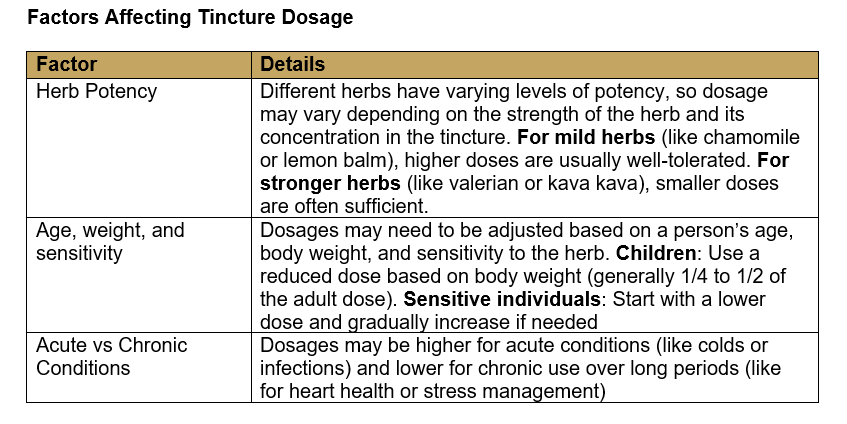Monitoring your progress is an essential part of ensuring that your herbal plan is working effectively for your specific needs. Just as with any other form of healing, your body’s response to herbs may change over time, and regular tracking allows you to make informed adjustments to your regimen. Herbs often work gradually, so it’s important to be patient and observe how they’re influencing your body. By consistently assessing how you feel and making modifications as needed, you can refine your approach and get the most benefit from your herbal remedies.
Keep a Journal: Document Your Experience
One of the most effective ways to monitor how herbs are affecting your body is by keeping a health journal. Writing down your daily or weekly experiences gives you a clear record of the changes you’re experiencing and helps you spot patterns over time. This kind of documentation is invaluable, especially when it comes to fine-tuning your herbal regimen.

- Track Symptoms: Document any symptoms you’re trying to address with herbs, such as stress, digestive issues, pain, or insomnia. For example, if you’re taking valerian root for sleep, record how well you’re sleeping each night and whether you notice any improvements in sleep quality or duration over time.
- Note Moods and Energy Levels: Herbs can also have subtle effects on your mood and energy levels. Pay attention to how you’re feeling emotionally and physically throughout the day. If you’re taking an adaptogen like ashwagandha, note whether your stress levels feel more manageable or if you feel more energized and focused after a few weeks.
- Record Dosages and Timing: It’s also important to write down what herbs you’re taking, how much, and when. This information is crucial when it comes to identifying any side effects or determining which herbs are having the most impact. If you’re using a combination of herbs, recording the dosages allows you to adjust amounts individually as needed.
- Identify Patterns: Over time, you’ll start to notice patterns in how your body responds to certain herbs. Perhaps your energy dips in the afternoon, so you might consider adjusting the timing of your herbs to better support you during that time. Or you might realize that a particular herb is causing digestive discomfort, indicating that a lower dose might be more suitable.
Keeping a journal helps you to reflect on your progress and make data-driven decisions. It also becomes a helpful resource when consulting with an herbalist or healthcare provider, giving them a clear picture of how your body is responding to the herbs.
Evaluate Effectiveness: Assess the Impact of Herbs on Your Health
After several weeks of using herbs, it’s time to assess their effectiveness. Since herbs often take time to work, it’s essential to give them a reasonable period (usually 4-6 weeks) before expecting significant changes. By evaluating your symptoms, energy levels, mood, and overall well-being, you can determine whether the herbs are having the desired effect.

- Check for Symptom Improvement: The primary goal of your herbal plan is to improve the specific symptoms you’re addressing. For instance, if you’ve been using ginger for digestive issues, ask yourself whether you’re experiencing fewer instances of bloating or indigestion. If you’ve been taking turmeric for inflammation, are your joints feeling less stiff or painful?
- Look for Subtle Shifts: Sometimes, the changes brought about by herbs are subtle and happen gradually. You may not notice drastic improvements overnight, but over time, you might feel more balanced, less stressed, or better able to cope with physical or emotional challenges. Even small shifts in how you feel can indicate that the herbs are working and building cumulative effects.
- Watch for Side Effects: While herbs are generally safe, they can sometimes cause side effects, particularly if taken in excessive amounts or if you have a sensitivity to a specific herb. Common side effects may include digestive discomfort, headaches, or changes in energy levels. If you notice any negative reactions, it may be a sign to adjust the dosage or discontinue use of that herb.
- Reassess Dosage and Frequency: If you feel that the herbs are working, but the results aren’t as pronounced as you’d like, consider adjusting the dosage or frequency. For example, if you’re taking a small dose of echinacea for immune support and feel like you’re still catching colds frequently, increasing the dosage might give your immune system a stronger boost.
- Adjust or Switch Herbs: In some cases, you may find that an herb isn’t providing the results you expected. This doesn’t necessarily mean the herb isn’t effective—it might simply not be the right herb for your body or the condition you’re trying to address. If an herb doesn’t seem to be working after several weeks, consider switching to a different herb with similar properties, or consult with an herbalist for guidance on alternatives.
Consult with Professionals: Expert Guidance for Long-Term Success
Even if you’re familiar with herbs, it’s always helpful to consult with an experienced herbalist or healthcare provider, especially for long-term success. These professionals can offer insights and guidance that you may not have considered, helping you make adjustments to your herbal plan in a way that’s both safe and effective.
- Herbalist Expertise: Herbalists are trained to understand the complexities of herbs, including how different herbs interact with each other, how to customize dosages, and which formulations are best suited for specific conditions. They can help you refine your herbal plan based on your individual health needs and suggest new herbs to try if the ones you’re using aren’t delivering the desired results.
- Medical Consultation: If you’re managing a chronic condition, taking medication, or experiencing significant changes in your health, regular check-ins with your healthcare provider are crucial. Your doctor can help monitor potential interactions between herbs and any medications you’re taking, as well as assess any health changes that might require modifying your herbal regimen.
- Plan Evolution: As your health evolves, so too should your herbal plan. For example, if you initially started taking ashwagandha for stress but now find that your energy levels are low, an herbalist may recommend transitioning to a more stimulating adaptogen like rhodiola. Similarly, if you’ve been using herbs for acute symptoms and those symptoms have resolved, your herbalist can guide you in shifting toward a maintenance or preventive protocol.

Make Adjustments Based on Seasonal Changes
Herbal healing is often dynamic and may need to be adjusted based on changes in your lifestyle, environment, or health conditions. For example, during winter, you might emphasize herbs that support immunity, such as elderberry or echinacea, while in the spring, you could shift toward detoxifying herbs like dandelion or nettle to support liver health.
- Adapt to Changing Needs: If you notice that your body’s needs are changing with the seasons or due to new life circumstances (such as increased stress at work or changes in your diet), it’s important to adapt your herbal regimen accordingly. Herbs can be incredibly versatile, but they work best when tailored to your body’s current state and environment.

Monitoring and adjusting your herbal plan is a vital step in ensuring that you’re getting the most out of your herbal remedies. By keeping a detailed journal, evaluating the effectiveness of your herbs, and consulting with professionals, you can continuously fine-tune your regimen to align with your evolving health needs. Herbal healing is a journey, and making thoughtful adjustments along the way ensures that you’re always moving toward better health and well-being.
My Approach To Using Herbal Therapies for Health Part 1
Creating a Personalized Herbal Therapy Plan Part 2
Fine Tuning Your Herbal Plan for Optimum Results Part 3
Creating a Holistic Approach to Healing – Part 4
Educate Yourself Continuously: The Key to Empowered Herbal Healing Part 5
A Structured Approach to Daily Wellness – Part 6 – Conclusion

